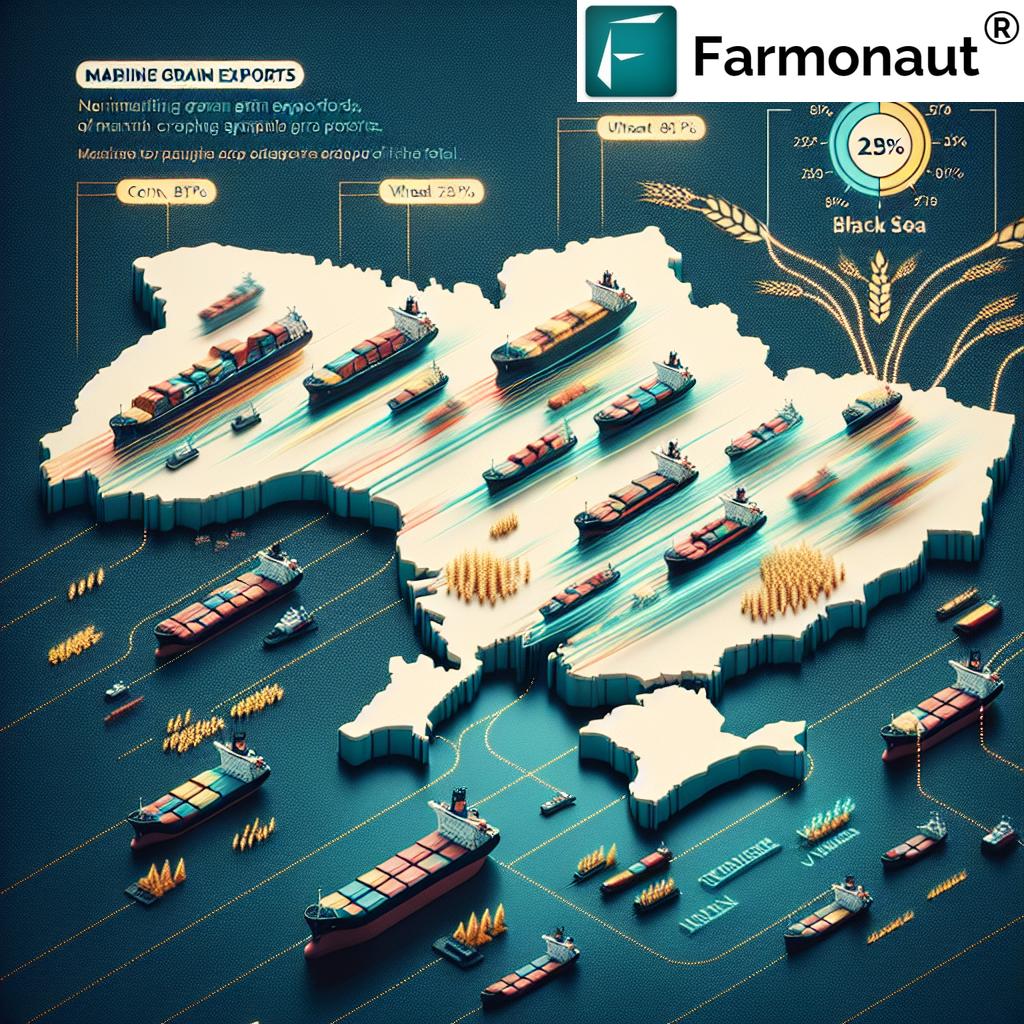Caribbean Trade Crisis: How US Tariffs and Global Challenges Impact Regional Economies

“Caribbean economies face a 15-20% decline in exports due to US tariffs and global trade challenges.”
In recent years, the Caribbean region has found itself at the epicenter of a complex and far-reaching trade crisis. The implementation of US tariffs on Caribbean goods, coupled with broader global economic challenges, has sent shockwaves through the economies of these small island nations. As we delve into this intricate web of international trade relations, we’ll explore how these factors are reshaping the economic landscape of the Caribbean and the strategies being employed to navigate these turbulent waters.
The Impact of US Tariffs on Caribbean Economies
The Caribbean trade impact stemming from US tariffs has been significant and multifaceted. As a region heavily dependent on trade with the United States, the introduction of new tariffs has disrupted long-standing economic relationships and forced a reevaluation of trade strategies. Here’s how the tariffs are affecting different aspects of Caribbean economies:
- Export Decline: Many Caribbean countries are experiencing a sharp decline in exports to the US market, with some sectors seeing reductions of up to 20%.
- Price Increases: The tariffs have led to higher prices for Caribbean goods in the US market, making them less competitive and potentially reducing demand.
- Job Losses: As exports decline, industries across the Caribbean are facing job losses, particularly in sectors heavily reliant on US trade.
- Revenue Shortfalls: Reduced trade volumes are leading to lower government revenues, straining already tight national budgets.
The implementation of these tariffs has highlighted the vulnerability of Caribbean economies to external policy shifts, particularly those originating from major trading partners like the United States.
Global Trade Crisis Effects on the Caribbean
Beyond the specific impact of US tariffs, the Caribbean is grappling with the broader effects of a global trade crisis. This crisis, characterized by rising protectionism, trade disputes between major economies, and supply chain disruptions, is creating a challenging environment for small, trade-dependent economies like those in the Caribbean.
Key aspects of this global crisis affecting the region include:
- Supply Chain Disruptions: Global supply chain issues are leading to shortages and increased costs for imported goods, affecting both businesses and consumers in the Caribbean.
- Reduced Tourism: Economic uncertainties in major source markets are impacting tourism, a crucial sector for many Caribbean economies.
- Investment Hesitation: The unstable global trade environment is causing investors to hesitate, potentially slowing down economic development in the region.
- Currency Pressures: Fluctuations in global markets are putting pressure on Caribbean currencies, affecting purchasing power and inflation rates.
Caribbean Economic Challenges in the Face of Trade Disruptions
The combination of US tariffs and global trade instability has exposed and exacerbated several long-standing economic challenges faced by Caribbean nations:
- Economic Diversification: Many Caribbean countries are overly reliant on a narrow range of exports or industries, making them vulnerable to sector-specific shocks.
- Infrastructure Limitations: Inadequate transportation and logistics infrastructure hinders the region’s ability to adapt quickly to changing trade patterns.
- Scale Disadvantages: The small size of Caribbean economies makes it difficult to achieve economies of scale in production, limiting competitiveness in global markets.
- Climate Vulnerability: The region’s susceptibility to natural disasters adds another layer of economic risk, particularly in the context of global climate change.
Addressing these challenges requires a multifaceted approach, combining short-term crisis management with long-term strategic planning.
Regional Cooperation in the Caribbean: A Response to Trade Challenges
In the face of these daunting challenges, Caribbean nations are increasingly turning to regional cooperation as a means of bolstering their economic resilience. The Caribbean Community (CARICOM) is playing a pivotal role in coordinating responses to the trade crisis and fostering closer economic ties within the region.
Key initiatives in regional cooperation include:
- Harmonized Trade Policies: CARICOM members are working towards more unified trade policies to strengthen their collective bargaining power in international negotiations.
- Intra-Regional Trade Promotion: Efforts are underway to boost trade between Caribbean countries, reducing dependence on external markets.
- Shared Infrastructure Projects: Joint investments in transportation and logistics infrastructure aim to improve connectivity and reduce trade costs within the region.
- Collaborative Diplomacy: Caribbean nations are presenting a united front in international forums, advocating for policies that address the unique challenges faced by small island developing states.
“Over 60% of Caribbean countries are exploring economic diversification strategies to combat trade vulnerabilities.”
Caribbean Agricultural Production: A Path to Resilience
In the quest for economic diversification and reduced import dependence, many Caribbean countries are placing renewed emphasis on agricultural production. This focus on agriculture serves multiple purposes:
- Food Security: Increasing local food production helps insulate the region from global supply chain disruptions and price fluctuations.
- Export Opportunities: Developing niche agricultural products offers potential for new export markets beyond traditional partners.
- Rural Development: Investing in agriculture can stimulate rural economies and create employment opportunities outside of urban centers.
- Environmental Sustainability: Sustainable agricultural practices can contribute to climate change mitigation and adaptation efforts.
To support this agricultural push, many Caribbean countries are leveraging technology to enhance productivity and sustainability. For instance, Farmonaut’s crop plantation and forest advisory services offer valuable insights for optimizing agricultural production through satellite-based monitoring and AI-driven recommendations. This technology can help Caribbean farmers make data-driven decisions to improve yields and manage resources more efficiently.
Tourism Strategy in the Caribbean: Adapting to New Realities
Tourism remains a crucial sector for many Caribbean economies, but the industry faces significant challenges in the current global environment. To address these challenges, Caribbean nations are developing new tourism strategies focused on:
- Diversification of Source Markets: Reducing dependence on traditional markets by attracting visitors from emerging economies.
- Sustainable Tourism: Developing eco-friendly tourism offerings that appeal to environmentally conscious travelers.
- Digital Marketing: Leveraging social media and digital platforms to reach potential visitors directly.
- Health and Wellness Tourism: Capitalizing on the region’s natural assets to attract visitors seeking relaxation and rejuvenation.
These strategies aim to make the Caribbean tourism sector more resilient to external shocks and economic fluctuations.
Caribbean Supply Chain Disruption: Challenges and Solutions
The global supply chain crisis has had a profound impact on Caribbean economies, highlighting the region’s vulnerability to external disruptions. Key challenges include:
- Increased Shipping Costs: Rising freight rates have led to higher prices for imported goods.
- Delays in Receiving Goods: Supply chain bottlenecks have caused significant delays in the delivery of essential imports.
- Shortages of Key Commodities: Some Caribbean countries have experienced shortages of critical goods due to global supply constraints.
To address these challenges, Caribbean nations are exploring several solutions:
- Regional Sourcing: Increasing intra-regional trade to reduce dependence on distant suppliers.
- Inventory Management: Improving inventory practices to buffer against supply chain disruptions.
- Digital Supply Chain Solutions: Adopting technologies like blockchain to enhance supply chain visibility and efficiency.
In this context, Farmonaut’s traceability solutions can play a crucial role in enhancing supply chain transparency and efficiency for Caribbean businesses, particularly in the agricultural sector.

Caribbean International Trade Relations: Expanding Horizons
As traditional trade relationships face challenges, Caribbean countries are actively seeking to diversify their international trade partnerships. This effort includes:
- Strengthening Ties with Latin America: Exploring closer economic integration with neighboring countries in Central and South America.
- Engaging with Asian Markets: Developing trade relationships with fast-growing Asian economies, particularly China and India.
- Renewing European Partnerships: Leveraging historical ties to forge new trade agreements with European countries post-Brexit.
- Exploring African Opportunities: Investigating potential trade and investment links with African nations, particularly in sectors like agriculture and renewable energy.
These efforts aim to create a more balanced and resilient trade portfolio for Caribbean economies.
Caribbean Economic Diversification: Building Resilience
Economic diversification is a key strategy for Caribbean nations seeking to reduce their vulnerability to external shocks. This approach involves:
- Developing New Industries: Investing in sectors like technology, renewable energy, and creative industries to broaden the economic base.
- Enhancing Value-Added Production: Moving up the value chain in traditional industries to capture more economic benefits.
- Promoting Entrepreneurship: Supporting small and medium-sized enterprises to foster innovation and job creation.
- Investing in Education and Skills: Developing human capital to support emerging industries and attract foreign investment.
Technology plays a crucial role in this diversification effort. For instance, Farmonaut’s carbon footprinting services can help Caribbean businesses measure and manage their environmental impact, aligning with global sustainability trends and opening new market opportunities.
The Role of Technology in Caribbean Economic Resilience
As Caribbean nations navigate the complexities of global trade challenges, technology emerges as a powerful tool for enhancing economic resilience. Advanced technologies offer opportunities to overcome some of the limitations faced by small island economies:
- Digital Services: Developing digital service industries that are less constrained by physical geography.
- Precision Agriculture: Utilizing technologies like satellite imaging and AI to optimize agricultural production.
- Renewable Energy: Harnessing technology to develop sustainable energy solutions, reducing dependence on imported fossil fuels.
- E-commerce Platforms: Creating digital marketplaces to connect Caribbean businesses with global consumers.
In this context, solutions like Farmonaut’s fleet management tools can help Caribbean businesses optimize their logistics operations, crucial for improving competitiveness in international markets.
Caribbean Economic Indicators Comparison
| Indicator | Jamaica | Trinidad and Tobago | Barbados | Dominican Republic | Regional Average |
|---|---|---|---|---|---|
| GDP Growth Rate (%) | 1.2 | -0.3 | -0.1 | 4.7 | 1.4 |
| Unemployment Rate (%) | 7.8 | 4.5 | 10.1 | 5.9 | 7.1 |
| Trade Balance with US ($ billions) | -1.2 | 0.8 | -0.4 | -3.2 | -1.0 |
| Agricultural Exports (% of GDP) | 2.5 | 0.8 | 1.2 | 3.7 | 2.1 |
| Tourism Revenue (% of GDP) | 31.5 | 7.2 | 39.4 | 16.3 | 23.6 |
Conclusion: Navigating the Future of Caribbean Trade
The Caribbean trade crisis, exacerbated by US tariffs and global economic challenges, presents a complex set of obstacles for the region. However, it also offers an opportunity for transformation and growth. By embracing regional cooperation, diversifying economies, leveraging technology, and forging new international partnerships, Caribbean nations can build more resilient and sustainable economic futures.
As the region moves forward, the key to success will lie in balancing short-term crisis management with long-term strategic planning. This approach will require continued investment in human capital, infrastructure, and innovation, as well as a commitment to sustainable development practices.
The road ahead is challenging, but with determination, creativity, and cooperation, the Caribbean has the potential to emerge from this crisis stronger and more resilient than ever before.
FAQ Section
Q: How are US tariffs specifically impacting Caribbean economies?
A: US tariffs are leading to reduced exports, higher prices for Caribbean goods in the US market, job losses in export-oriented industries, and lower government revenues for Caribbean nations.
Q: What strategies are Caribbean countries employing to diversify their economies?
A: Caribbean nations are focusing on developing new industries like technology and renewable energy, enhancing value-added production in traditional sectors, promoting entrepreneurship, and investing in education and skills development.
Q: How is regional cooperation helping Caribbean countries address trade challenges?
A: Regional cooperation through CARICOM is facilitating harmonized trade policies, promoting intra-regional trade, enabling shared infrastructure projects, and supporting collaborative diplomacy in international forums.
Q: What role does agriculture play in the Caribbean’s economic resilience strategy?
A: Agriculture is seen as crucial for food security, creating new export opportunities, stimulating rural development, and contributing to environmental sustainability efforts in the Caribbean.
Q: How are Caribbean countries adapting their tourism strategies in light of global challenges?
A: Caribbean nations are diversifying their source markets, developing sustainable tourism offerings, leveraging digital marketing, and focusing on niche sectors like health and wellness tourism.
Earn With Farmonaut: Affiliate Program
Earn 20% recurring commission with Farmonaut’s affiliate program by sharing your promo code and helping farmers save 10%. Onboard 10 Elite farmers monthly to earn a minimum of $148,000 annually—start now and grow your income!

















I really like your writing style, good information, thank you for posting :D. “Let every man mind his own business.” by Miguel de Cervantes.